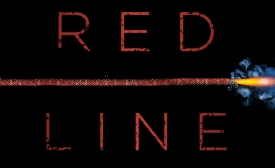Trump administration

Who will win hearts and minds: Indispensable America vs. Fortress America. P.J. Crowley had some answers on Aug. 23.
The Trump administration is considering folding the U.S. Agency for International Development (USAID) into the State Department and making deep cuts to both foreign assistance and diplomacy. These proposals spring from the vaguely articulated principle of “America First” and a belief that the United States spends too much money on foreign assistance and not enough on its own people. This idea is designed to save the taxpayers money and make the country safer. It accomplishes neither.
Over a decade ago, I met a newborn who forever changed my life. But I was not able to change hers. I knew immediately that without health interventions, this precious baby would likely die. There I was. Another white girl. Standing in a remote village outside of Solwezi, Zambia. There to learn but frozen with emotion. There to help but without the tools. I had a bachelor of arts from Millsaps College. I was no doctor. It was my first trip to rural Africa, and I was both hopeless and overwhelmed.
The United States and its new administration need to reengage with Latin America. Regional dynamics are favorable for it, giving President Trump the opportunity to reestablish relationships with the rest of the Western Hemisphere—and thus reaffirm the United States’ position as the region’s key partner. Regional primacy must remain a cornerstone of US Grand Strategy if President Trump truly wants to protect the country’s strategic interests and national security.
Social media is a great campaign tool. And it is a great way for government to connect with constituents. But without some serious discipline, the use of social media by government officials can be a threat to the nation. What we are seeing now is a learning curve at the White House that could yield disaster before it reaches maturity. That is a result none of us should aspire to.
"The greatest damage might be in the realm of public diplomacy," write Nathan Brown and Michelle Dunne of the Carnegie Middle East Center. "Using a broad brush to paint all Muslim Brotherhood organizations as terrorists would be understood by many Muslims around the world as a declaration of war against non-violent political Islamists — and indeed against Islam itself."
Peace Meal Kitchen is an exercise in gastrodiplomacy – fostering cultural exchange and increased understanding through food. As NPR wrote in 2014, while the concept is fairly new in terms of its place in cultural diplomacy as a whole, “the idea itself can be traced back to the ancient Romans, who often made peace with their enemies over a good meal.”
How should the Trump administration approach Pyongyang diplomatically? Given a widespread, rigid view among U.S. policymakers that the Kim regime is nothing more than an “evil deceiver” and the tendency of those policymakers to automatically equate talking to North Korea with a reward, setting up a low-profile back channel with North Korean negotiators should be prioritized first.







